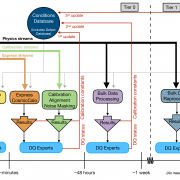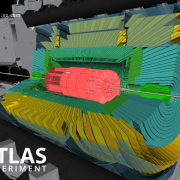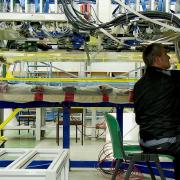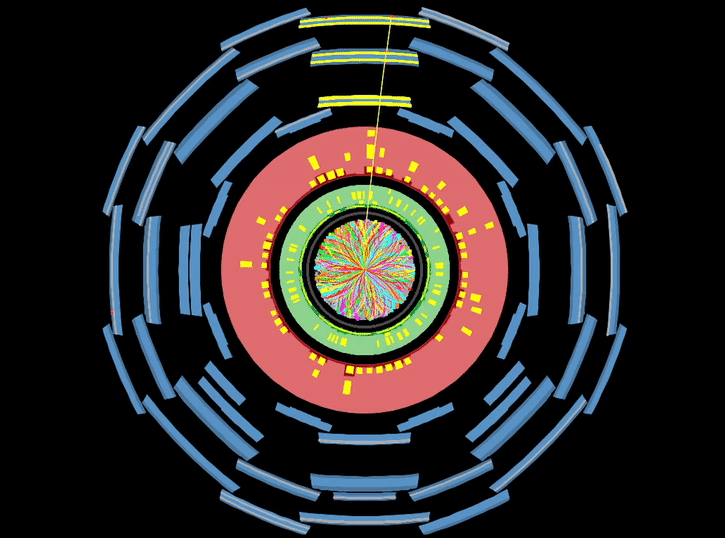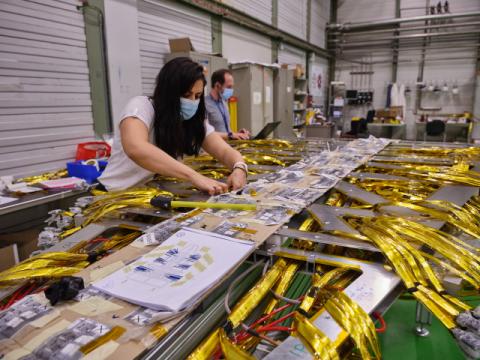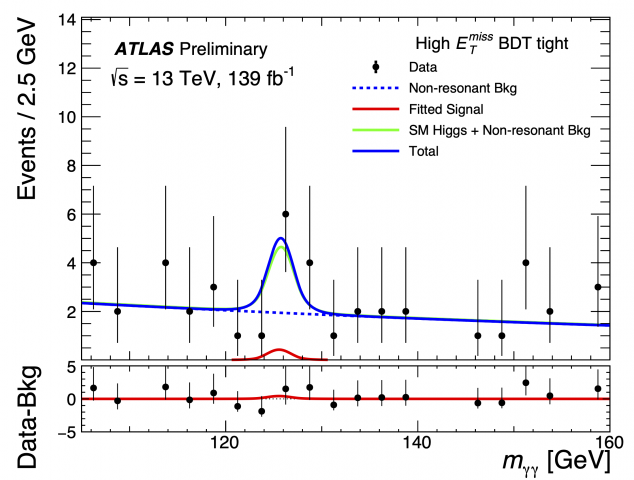Access to Collaboration Site and Physics Results

The electromagnetic barrel calorimeter was installed in its final position in October 2005. Since then, the calorimeter is being equipped with front-end electronics. Starting in April 2006, electronics calibration runs are taken a few times per week to debug the electronics and to study the performance in the pit (stability, noise). Today, 10 out of the 32 Front End crates are being read out, amounting to about 35000 channels.
In parallel to this activity, the continuous improvement of the online/monitoring in interaction with the TDAQ and Tile groups has led to the first two days of cosmics data taking at the end of August. Integrating both subdectectors was quite fast and the observation of cosmic rays using only one electromagnetic calorimeter module was a first success. A second run period occured from October 6th to October 13th, with data taken overnight and during one weekend.
More than 78k events were accumulated using the trigger delivered by the Tile calorimeter, with a typical rate of 0.15 Hz. One run lasted up to 37 hours. A typical event display is shown below indicating the energy deposit in each calorimeter.
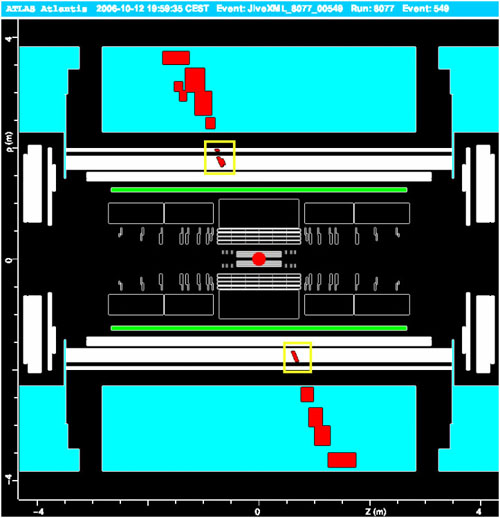
Among the cosmic events, those with catastrophic energy losses sometimes yield large energy deposits as displayed in the following figure. This is the first recording of a ~30 GeV energy deposit in the ATLAS electromagnetic calorimeter!
The analysis of these data, with the help of fresh young people joining the effort, is just starting and promises to be quite exciting. After considerable more work, we expect to control the signal reconstruction to a ~1% accuracy and the physics timing to 1 ns.



